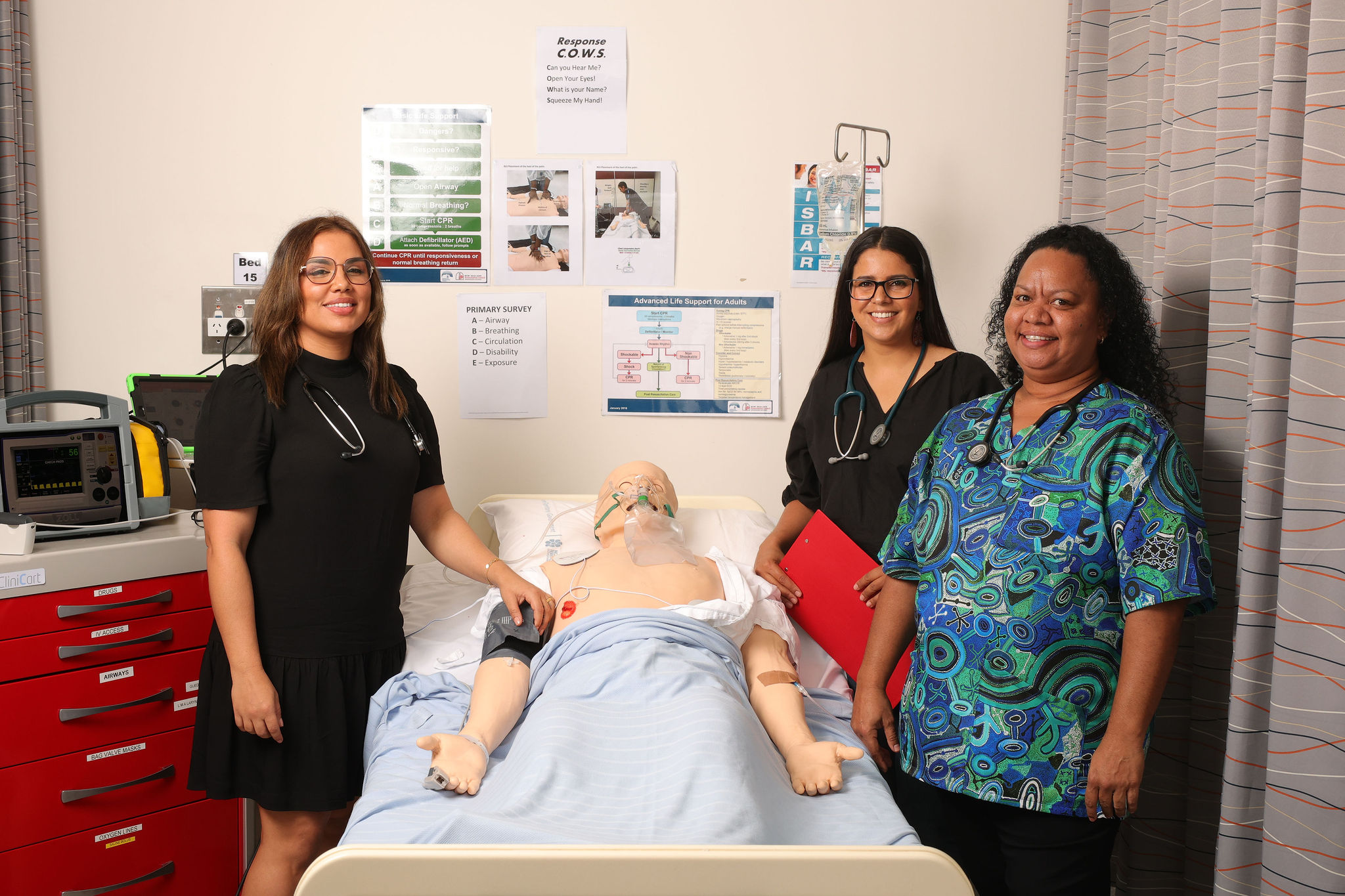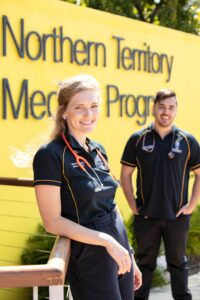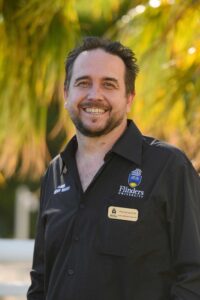
A record number of 39 medical students are starting their journey at Flinders University in Darwin this week, a 30% total increase in new students when compared to last year.
 Flinders University has received extra funding from Commonwealth and Northern Territory Governments to expand its Northern Territory Medical Program (NTMP), the only local medical program in the Northern Territory (NT).
Flinders University has received extra funding from Commonwealth and Northern Territory Governments to expand its Northern Territory Medical Program (NTMP), the only local medical program in the Northern Territory (NT).
The program has been running since 2011 and is the only pathway for students located in the NT to study and work where they live. The NTMP is set to boost the pipeline of medical staff in the Territory for the years to come.
Rural and Remote Health Deputy Dean Professor James Smith says the program expansion is great news for the Northern Territory and its community.

“We are delighted to welcome a record number of students this year, up from 30 in 2023 and 24 in 2022. This is an acknowledgement of Flinders University’s commitment to facilitate and deliver an outstanding program in the NT, taught by local staff and trained in local facilities,” Professor Smith says.
“To receive additional funding is a vote of trust from the governments, and an appreciation of our past work. To date, the program has produced over 200 graduates and more than half of them are now in the NT workforce.
“These individuals play a massive role in the local community and Flinders is proud to equip them with knowledge and skills to do that,” he says.
Flinders University is also reporting record growth in Indigenous students, with 10 Indigenous students enrolled into their first year of the NTMP.
The strong Indigenous representation is partly a result of Flinders University’s own pathway stream, the Indigenous Entry Stream (IES), which helps support and prepare Indigenous students who have already completed a bachelor degree before commencing the Medicine program.
Five students who completed the IES are starting to study medicine in the Northern Territory. Now in its 12th year, the program is offered by Flinders University to Aboriginal and Torres Strait Islander students wishing to study medicine including those who do not have a valid Graduate Medical School Admission Test (GAMSAT) score.
Ms Kath Martin, Program Director, Aboriginal and Torres Strait Islander Pathways in Medicine says the program offers Indigenous students the chance to explore if they want to pursue a career in medicine.
“The Indigenous Entry Stream is an alternative pathway with proven success at attracting Aboriginal and Torres Strait Islander peoples who perhaps wouldn’t have considered the possibility of becoming a doctor and preparing them for success,“ says Ms Martin.
“If we can impact the medical workforce of the future by training more Aboriginal and Torres Strait Islander people as doctors who provide greater cultural safety for First Nation’s patients, that’s going to help to close the gap and bring much better outcomes for their community,” she adds.
As part of the program, the IES participants are introduced to the cultural, academic and social support staff and programs available to them should they progress to studying medicine.
Sophie L’Estrange, one of the medical students starting this week, also completed the IES last year. Having worked as an oral health professional for several years, Sophie appreciates the challenges remote places bring. However, she recognised that these unique challenges can sometimes limit professional growth.
“Being a doctor was intriguing, but I never thought that I was smart enough or I’d have to move to the city to study. It never fit into my lifestyle or where I was at in my life stage,” she says.
“With both programs being offered locally, I did not need to uproot my family and can plan our future in the NT where we are,” says Sophie.
Flinders University has developed and delivered health education and research expertise in the Northern Territory for more than 25 years, with local staff and infrastructure based in Darwin, Nhulunbuy, Katherine, Tennant Creek and Alice Springs.
The Welcome week for Year 1 medicine students runs from 5-9 February with a focus on preparing new students for the class commencement and addressing the social context and student wellbeing. Students will take part in the Saltwater Welcome to Country ceremony, familiarise themselves with classrooms and laboratories, mingle with staff and experts at joint lunches and be involved in social activities.

